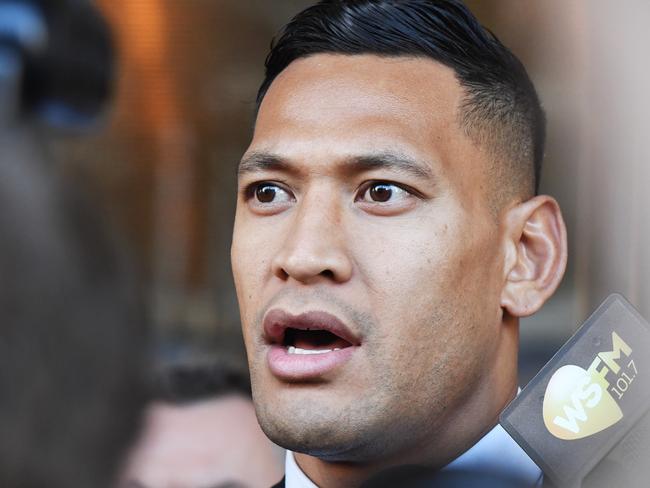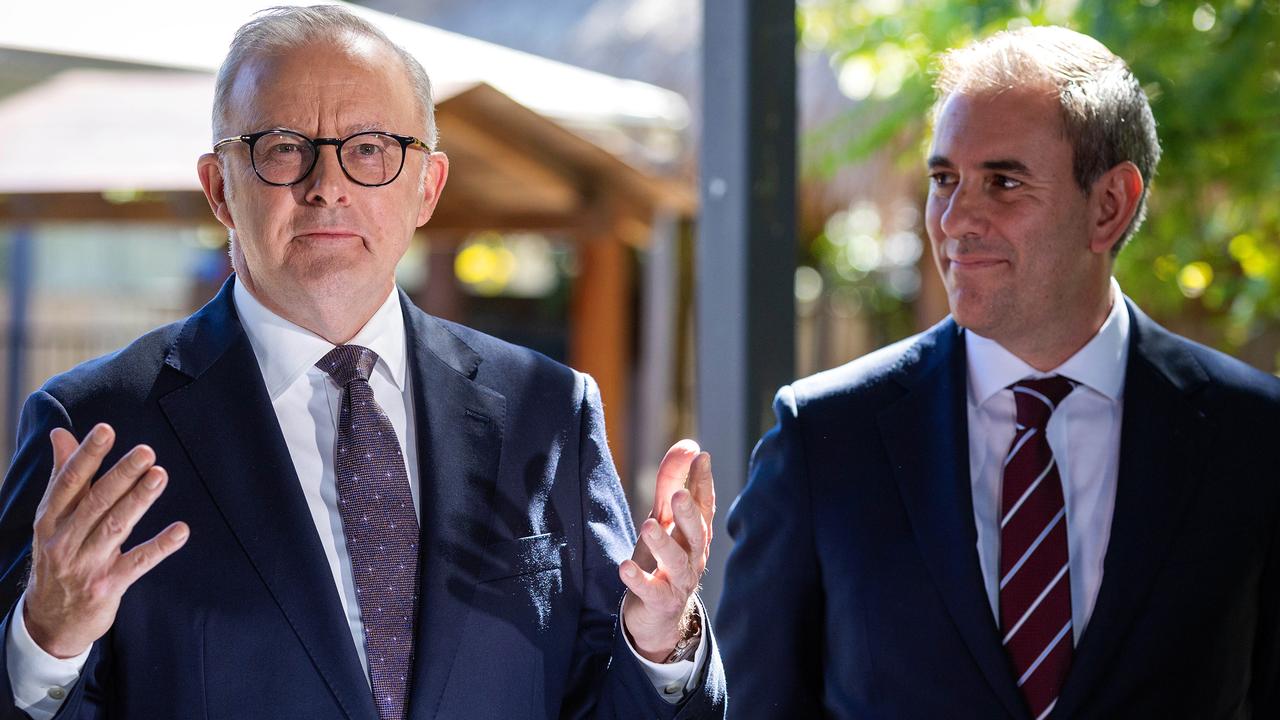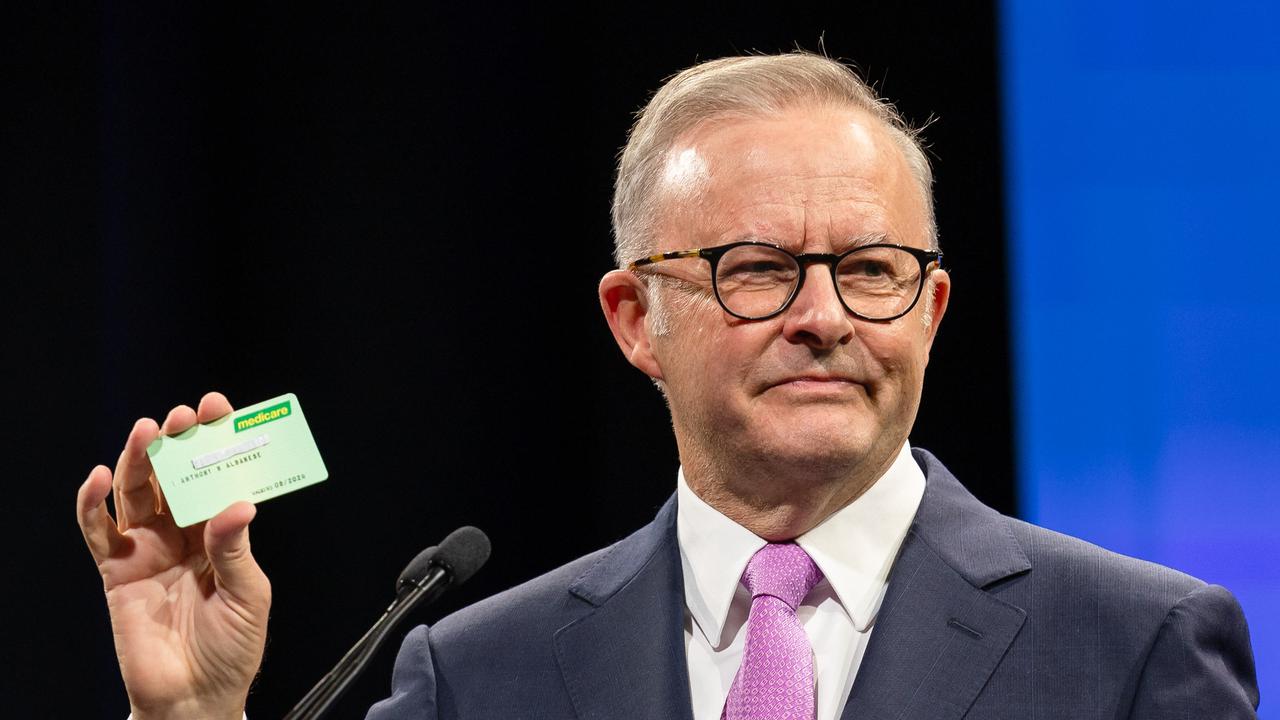The Israel Folau debate makes us question how freely we really can speak
WHEN we censor what people are saying - even when we vehemently disagree - can we really call ourselves a democracy? PHILLIPPA BUTT asks

Opinion
Don't miss out on the headlines from Opinion. Followed categories will be added to My News.
I DON’T think I know anyone who hasn’t been drunk, lied, fornicated or stolen.
Most of my friends and family are agnostic or athiests. Some of my close friends are gay.
We’re many of the people Israel Folau says are going to hell. Or rather, we’re many of the people the Bible says are going to hell.
FOLAU 'very, very disappointed' after Rugby Australia FairWork hearing
FOLAU claims Rugby Australia offered money to remove post
AUSTRALIA delivers verdict on Israel Folau debate in poll
AN open letter to Israel Folau
Personally, I don’t think we are. If there is any kind of hell and heaven, I reckon hell is reserved for the really bad people, and I’m pretty sure we’re not them.
But if Folau so wishes, he’s welcome to believe we’re going to hell.
Because I believe in free speech.
Just as I can write this column, Israel Folau should be able to post his beliefs on his personal Instagram page without his employer sacking him.
In fact, he should be able to post his opinions on his Instagram more than I can in this column — NewsCorp is the one footing the bill on this so that definitely gives them the right to scrap it.
Because the issue here is not whether the actual content of Folau’s message was acceptable — his post contained a bible verse that many people consider to be hurtful and has the potential to do huge damage to the communities and people it targets. Instead it is the wider issue of a company censoring its employees.
Yes, he was legally dumb, breaching the conditions of a contract that had already been expressed to him in crystalline terms, choosing to ignore any possible repercussions despite having previously been warned over similar conduct.

But should such conditions have existed in the first place? Should agreeing to censorship have been a condition of the deal to which he signed his name?
Should Folau, as an employee of the Australian and NSW Rugby Unions, have been beholden to them for what he said off the field, instead of what he did on it?
Should companies and businesses have the right to silence their staff members’ opinions if they differ from their own, and stop them sharing them with a wider audience?
Because you can bet if he posted progressive, accepting and all-round nicer views (which are still his own opinion), he wouldn’t have been dropped by Rugby Australia.
Just the other week, Taylor Swift released her new song You Need to Calm Down, featuring the lyric “control your urges to scream about all the people you hate, ‘cause shade never made anybody less gay”.
No one sees her label dropping her. And rightly so.
OPINION: 'WOKE' pop starts should just shut up and sing
Why are some stances, belief systems and opinions more acceptable than others?
The right to free speech should, of course, have caveats.
A high court case about abortion clinics and anti-abortion protesters determined the protesters should have their say but not within a certain distance of a clinic, to protect the rights of the woman using the service.
As that case showed, we should carefully consider the right to free speech over the right of others not to hear it.
Social media is the modern equivalent of Speakers Corner in London’s Hyde Park, where anyone and everyone can go to say their piece. It doesn’t mean you have to listen.
To argue something shouldn’t be posted on social media, because it is against what an employer believes, is a concerning idea.
Heads up: most employers probably also believe their staff should be working longer hours and be paid less. Most people wouldn’t agree with that.
Arguments like these are not about whether you believe what Folau or Swift or I say.
It’s about whether you believe in free speech.
OUR best value NT News subscription deal yet: $1 a week for the first 12 weeks
It’s easy to be supportive of free speech when people are saying what you agree with.
But when we acknowledge everyone should have a voice, even if what they’re saying is the opposite of what we believe?
That’s when it really matters.


